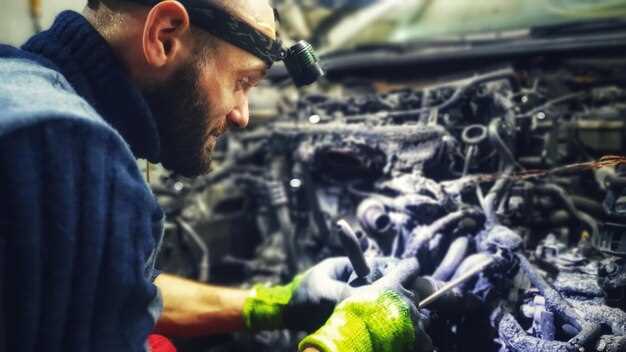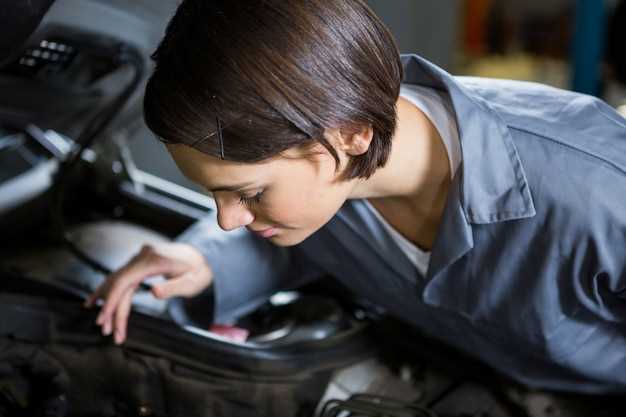

Owning a car is not just about having a mode of transportation; it also involves taking care of a complex machine that requires regular maintenance to ensure its longevity. The engine is the heart of your vehicle, and its performance directly influences your driving experience and overall safety on the road. To maximize the lifespan of your car engine, it is crucial to adopt practices that enhance its efficiency and reliability.
Every engine, regardless of its make or model, can benefit from a few key maintenance practices. By focusing on routine inspections, oil changes, and understanding how to respond to signs of wear and tear, you can significantly improve your engine’s durability. Additionally, incorporating simple habits into your driving routine can also contribute positively to your vehicle’s performance over time.
In this article, we will explore essential tips and strategies to extend your engine’s lifespan, emphasizing the importance of care in every aspect. By investing time and effort into these practices, you can ensure that your engine remains robust and reliable for many years, ultimately leading to a more enjoyable and economical driving experience.
Regular Oil Changes and Filter Maintenance

One of the most critical aspects of maintaining your vehicle’s engine is adhering to a consistent schedule for oil changes. Engine oil lubricates the moving parts, reducing friction and heat buildup. Over time, oil degrades and accumulates contaminants, which can negatively impact engine performance and longevity.
Regularly changing the oil ensures that fresh, clean oil circulates throughout the engine, effectively protecting it from wear and tear. Typically, oil change intervals depend on the type of oil used and the manufacturer’s recommendations, ranging from every 3,000 to 10,000 miles. Always consult your vehicle’s owner’s manual for guidance.
In addition to changing the oil, maintaining the oil filter is equally important. The filter captures debris and contaminants, preventing them from circulating within the engine. A clogged filter restricts oil flow, which can lead to increased friction and overheating. Replacing the oil filter during each oil change is essential for ensuring optimal engine function.
Investing time in regular oil and filter maintenance significantly contributes to the overall lifespan of your vehicle’s engine. By ensuring clean oil and a functioning filter, you enhance engine reliability and performance, ultimately prolonging its longevity.
Monitoring Engine Temperature and Cooling System Health
Maintaining optimal engine temperature is crucial for the longevity of your vehicle’s engine. The engine generates heat during operation, and without efficient temperature regulation, excessive heat can cause significant damage. Regularly monitoring the engine temperature ensures that it operates within the manufacturer’s specified range, preventing overheating that could lead to costly repairs.
The cooling system plays a vital role in managing engine heat. It comprises components like the radiator, water pump, and thermostat, all working together to dissipate heat effectively. Conduct routine inspections of these components to ensure they are functioning correctly. Look for signs of leaks, corrosion, or blockages that may hinder the system’s ability to cool the engine. A clogged radiator or a malfunctioning water pump can drastically affect temperature regulation.
Investing in a quality temperature gauge can provide real-time data on engine conditions. This tool alerts you to any fluctuations that may indicate a problem, allowing for timely intervention. If the gauge points to higher than normal temperatures, it is essential to pull over and investigate to prevent potential engine failure.
Additionally, regular coolant replacement is essential for maintaining the cooling system’s efficiency. Old coolant can lose its properties and become less effective at regulating temperature. Follow the manufacturer’s recommendations for coolant change intervals to keep the system in peak condition.
By closely monitoring engine temperature and maintaining the cooling system, you can significantly enhance your engine’s lifespan, ensuring it continues to perform optimally for years to come.
Using Quality Fuels and Additives

To ensure the longevity of your engine, utilizing high-quality fuels and additives is crucial. Quality fuels contain fewer impurities, which can help reduce carbon buildup and keep the fuel system clean. This cleanliness leads to improved combustion processes and enhances overall engine performance.
When selecting fuel, always opt for those that meet or exceed your vehicle manufacturer’s specifications. Premium fuels often have higher octane ratings, which can prevent knocking and optimize power output. Additionally, they may contain detergents that assist in maintaining clean injectors and valves, contributing further to engine longevity.
Incorporating fuel additives can also play a significant role in engine care. These additives can enhance fuel stability, combat moisture, and provide additional cleaning properties. For instance, fuel stabilizers are beneficial for vehicles that are not driven regularly, preventing fuel degradation over time. Regular use of additives designed to clean the intake system can help in maintaining engine efficiency and performance.
It’s important to choose certified additives from reputable brands, as low-quality products may lead to more harm than good. Always read labels and ensure compatibility with your engine to maximize the benefits of these products.
In summary, prioritizing high-quality fuels and appropriate additives is essential for enhancing engine longevity, optimizing performance, and maintaining the health of your vehicle over time.






